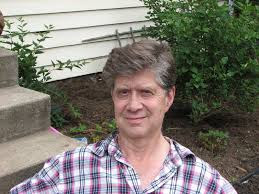By
Michael Casey
Loom
Press
Lowell,
MA
ISBN:
978-093150742-7
162
Pages
$15.00
Review
by Dennis Daly
When
understated, casual, colloquial poetry—you know, the type that anyone can
write—jolts winsome expectations with subtext after insightful subtext, watch
out. Michael Casey has been writing this type of poetic narrative at least
since 1972, when Stanley Kunitz chose his book Obscenities for the Yale Younger
Poets Prize. Casey’s new book, there it
is New & selected Poems, chronicles his inspired career with lyrical
monologues like no others. His poetry lures you in with its blue collar
simplicity and sets you up, sometimes within a single piece, sometimes cumulatively.
The
collection’s opening poem, and one of my favorites, the last Yankee, packs a wallop. Casey narrates the travails of a
house-poor elderly lady as she negotiates the twists and turns of life’s
labyrinth. Her attempts to keep up appearances elicit the reader’s sympathy. On
the other hand, her flaws conjure up consternation and an interesting tension.
Consider these lines,
…
she stood outside
pretending
her bags
were
filled with groceries
she
said the City of Lowell
made
an offer to give her
so
much a month if only
she’d
sign over the house
the
owner of the Irish nursing home
tried
a similar deal too
but
she didn’t like the idea
the
politicians and nursing home owner
were
trying to steal her house
and
she wanted me to understand
that
two things ruined this town
unions
and Catholics
One
of the hallmarks of first and second generation immigrants in the now old
industrial towns such as Lowell was rote learning. Catholic nuns often provided
the delivery system. In his poem, severed
head, Casey mixes brutality with venomous wit. Sister Superior, doubling as
a substitute teacher, and a defensive one at that, asks the question, What did
Marco Polo discover? Louie, the usually quiet student, answers, polo. The
enraged Sister Superior assaults Louie with a metallic edged ruler (all
Catholic school students of that era know the ruler I’m talking about) and
opens up a blood-spewing gash in his head. There is not a little irony here.
Additionally, Louie was correct. Marco Polo most probably saw buzkashi, a
Central Asian game, played with a goat’s head, during his travels. In fact polo
was most likely named after him. Here’s the piece’s denouement,
he
bled all over
had
to go to the hospital for stitches
his
mother takes him
out
of St Michael’s
transfers
him to the Varnum
I
see him much later
and
says to him
Lou,
why’d y’ever raise your hand?
why
say Marco Polo discovered polo?
and
Louie goes
he
did didn’t he?
he
goes you know
Mongolian
horsemen with a severed head
Many
of Casey’s mill poems drive home the inevitability of human nature in labor
calculations, as well as survival traits.
Laugh out loud funny and stupidity does not entirely cancel out the
underlying employment danger. The poet explains,
this
new guy
he
throws a bucket of the stuff
into
the kettle
it
splashes back
his
ass was on fire
runnin
all over the dye house
Walter
chasin after him
it
was Alfred and me caught him
and
Walter helped us
throw
him in a soap barrel
same
fuckin guy
was
gonna bring home
industrial
peroxide
for
his wife to dye her hair
Walter
caught him then
just
in time
Elevator
transport holds the key to business success or failure in the factory world. Casey
puts an exclamation point on this dictum in his poem entitled forklift driver. Humorously, the poet
pins the sins of the world or at least its endangerment on a single multiple
offender, the all-powerful forklift driver. In the heart of the piece the poet
details the infraction,
he
tried to drive the forklift in it
when
the door was closed
that
is the third day in a row
something
like that happened
I’d
say to him
don’t
even bother ta punch out
just
leave
it’d
be worth the week’s pay or so
just
to get rid of him
do
you know how important
that
fuckin elevator is?
Drawing
from his experience in the military police, the poet narrates with a
combination of horror and black humor. The pieces themselves are insightful
well-cut diamonds. Casey’s poem frisk
especially sparkles. After the arrestee lets loose a torrent of verbal abuse,
the MPs take action. Then the piece, noting the response, concludes with three
punch lines. Take your pick,
who
taught you how to talk tat nice?
guy
replies
your
mother and his sister
Harry
and I didn’t say a word to him
we
just looked at reach other
and
then kicked
the
drunk’s feet away from the wall
his
face fell nose first
flat
on the concrete
his
neck actually cracks and snaps up
and
I would not have cared more less
it
was Harry’s fault anyway
he
should a kept quiet
I
don’t even have a sister
War
equals death. Those who engage in it better understand its unbounded
bestiality. Good people become good soldiers by killing. In fact both good
soldiers and dead soldiers share certain traits. Casey’s persona in his piece Victor poses with an explanation,
… they
back up the jeep
to
take the picture looking down
and
that is why the ground
is
the actual background for the picture
except
for that and the flies
the
picture they took
makes
both of us look alive
I’ve
never seen sheer power and keen intellect and down-to-earth humor fused in just
this way. Once again Casey’s poems detonate our hitherto artistic calm with
their dangerous uniqueness.







































